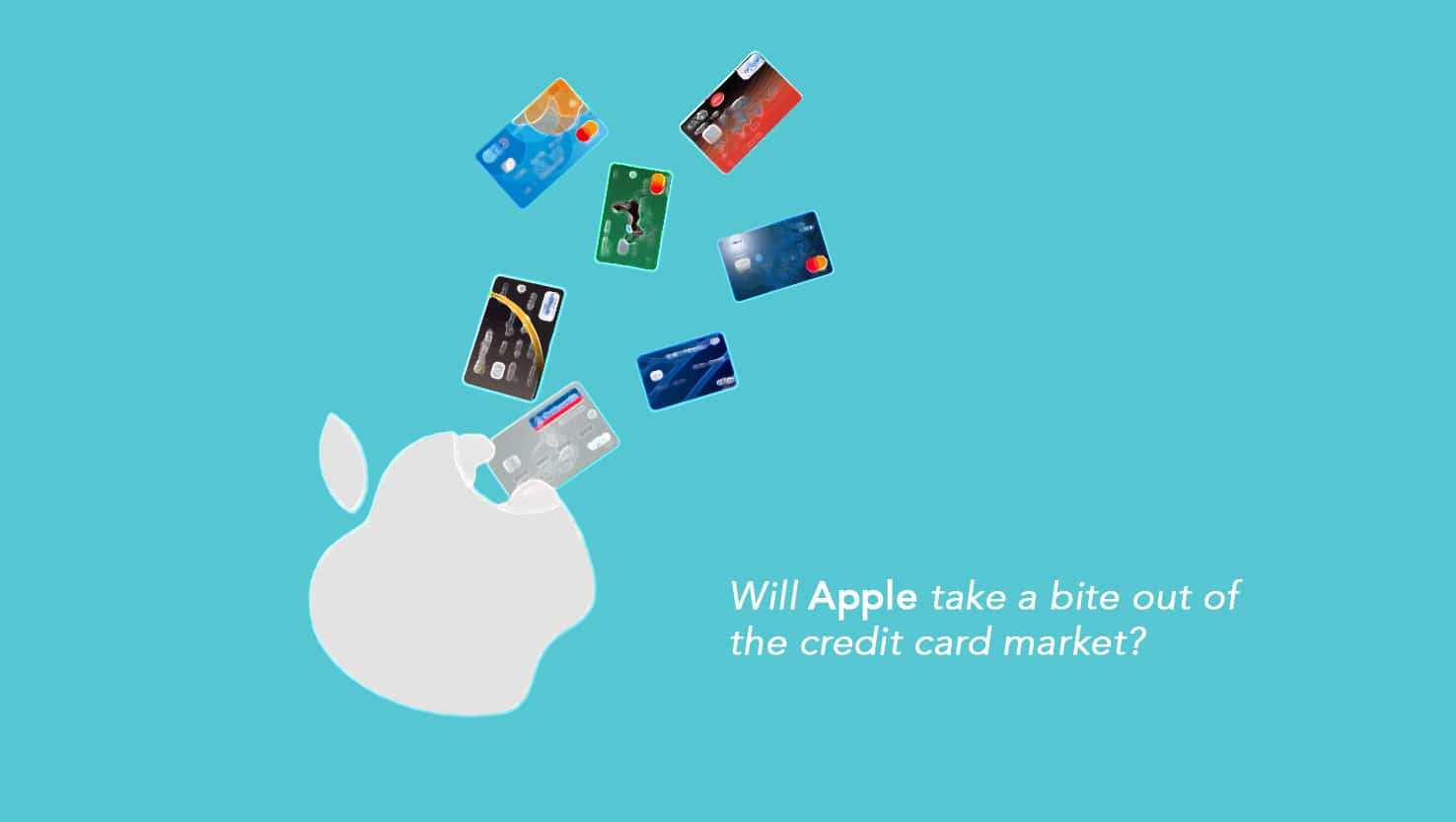Your read progress
Will apple take a bite out of the credit card market?
4 minute read
Updated 17th September 2025 | Published 27th March 2019

Earlier this week Apple announced that it will be launching its very own credit card. This will initially be released in the US, but with Apple already throwing a lot of money into its development, it surely won’t be long until this card is available to Apple fans worldwide.
But how is the Apple Card different and will it really take a bite out of the credit card market?
The Apple Card
Apple’s credit card will initially only be made available to US customers. iPhone users in the US can sign up to the Apple Card through the Wallet app and pay using Apple’s digital card ‘within minutes’, wherever Apple Pay is accepted. Apple will also supply users with a titanium card that can be used where Apple Pay is not yet accepted. Apple’s physical card does not have a credit card number, CVC, expiration date, or signature.
Apple is partnering with Goldman Sachs for Apple Card, and Mastercard will be handling the payment processing.
Features
At Apple Card’s launch we were given a look at a number of enticing in-app features, many of which we have seen before with the new wave of challenger banks. These include:
- New features to the Apple Wallet app, such as insights into when payments are due, as well as how much you owe and how much you have spent
- Spending notifications
- The Ability to text Apple Card to avoid the problems found with call centre services
- Links to Apple maps, so users can see where they have spent their money
- Categorisation of spending
A more attractive credit card?
Apple haven’t stopped there. Alongside their in-app features they have put a lot of stress on their commitment to data security and the financial benefits of using Apple Card.
At the launch of Apple Card, they claimed to have ‘set a new level for privacy and security’. So far we have been told there will be no card number, CVC, expiration date or signature, and that only the user will be able to use their digital Apple Card thanks to touch id and facial recognition. This focus on security will be crucial if Apple are to successfully lure people away from traditional credit card providers, with more and more of us thinking about the safety of our data.
Encouraging quicker payments
Furthermore Apple make it clear there are no fees with their credit card, not even hidden fees, which is a common issue consumers talk about on Smart Money People. Alongside this Apple Card encourages its users to pay less interest. By clearing more of your credit in larger sums, you will pay less interest, and the interest users pay is made clear and transparent in the Wallet app.
Cashback
And lastly Apple are offering a very enticing cashback scheme, whereby every time you spend with apple card you get cashback, which is added to your Apple Card. Apple are offering 2% cashback, on any purchase made using Apple Pay, and 3% on any purchase made with Apple itself, including the App Store and Apple Music. When users make purchases that don’t take Apple Pay, the rate is 1%.
Yet there is a clear question that comes with these attractive features. Are Apple making credit cards the go to spending method for consumers? And is this really a good thing? With all these enticing features it seems likely that we’ll be using our Apple credit card more frequently than our very low thrill debit cards, which could add to the growing consumer credit debt pile.
What does this mean for the future of credit cards?
We have seen the ‘tech giants’ challenge each others products for a while now. While Apple used to be the only game in town for a stylish smartphone it no longer is. So, it would be no surprise to see companies such as Samsung, Amazon and Facebook follow Apple into the financial services industry. For example, Amazon has been rumoured to be establishing a comparison site for insurance in the UK.
Yet Apple are in a very strong position to take on the traditional credit card providers, as they offer something no other challengers can. Apple have successfully stayed clear of scandals and damaging questions over data security. Their focus on data and privacy security makes them more trusted, and there’s a cool factor that most banks, including the newer ones, will find hard to replicate.
Over the last few years we have seen the likes of Monzo and Starling take on the traditional banks, offering new current accounts that are more user friendly. Yet no FinTech firm has successfully broken into the credit card industry, which is still dominated by Lloyds Banking Group (who acquired MBNA a few years ago).
When all is said and done, trust is at the heart of whether Apple will be able to entice customers away from traditional credit card providers. We want to be able to bank with a company we can trust, and no FinTech firm has, to date, been able to really trouble the likes of Virgin Money, Lloyds Banking Group or Barclaycard.
If Apple are able to convince consumers that they offer an innovative credit card product that makes the financial lives of consumers easier, and a bit more rewarding, and that they're secure and trustworthy, then we could be looking at the biggest disruption the credit card industry has seen for decades.
Written by Smart Money People Team
As Featured By
Join our mission
We use the power of consumer reviews to help increase trust and transparency in financial services and to deliver industry leading insight and events.
Write a reviewExplore our other topics

Guides: Smart money guides

Guides: Smart money tips

Guides: Business guides

Blogs: Money choices





